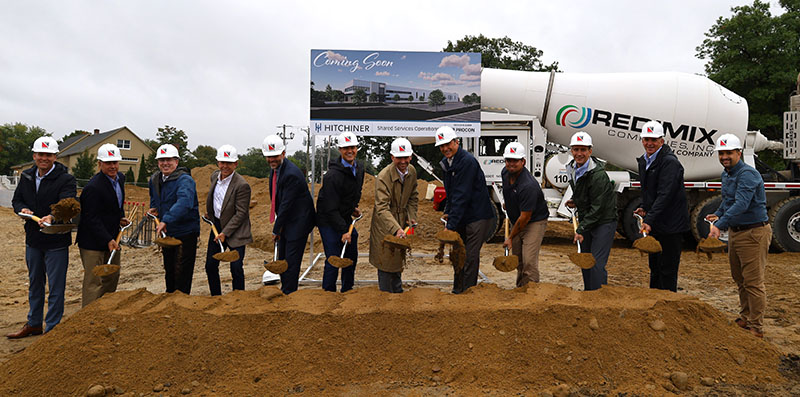News: Northern New England
Posted: July 3, 2014
Running (and winning) the project management race
The great minister and Yale Professor H.E. Luccock once said, "No one can whistle a symphony. It takes a whole orchestra." Similarly, real estate projects of any magnitude come about as the result of careful planning, inspiration, teamwork and well defined project management.
Simply put, project management is the art and science of making things happen. Ideas are just dreams until they are put in a framework that takes into account deadlines, budgets and specifications.
Whether you're talking the $2.8 billion sale of the General Motors building or a smaller scale local redevelopment plan, the concepts of project management remain the same. Much as we've been taught from grade school on up, we need to plan our work and then work our plan.
But working that plan isn't always easy, especially when you consider conflicting work styles, project restrictions and limitations and rapidly approaching deadlines; however, there are a set of constant guiding principles that transcend these issues and lead to much more positive results.
Elicit buy-in from the beginning - Is everyone rowing in the same direction? Are there differences of opinion from team members that can be ironed out at the outset? No one wants to get halfway through a major project with divided loyalties and differing expectations.
Be organized - Document your project via an outline and use that outline to mark your progress. Make changes if necessary once the project has begun. Keep meticulous records so that team members will be able to access information quickly and efficiently.
Establish connectivity - Every project in your organization affects all other projects. Establish a system where team members are introduced to all projects in the timeline and are aware of deadlines, workflow and assigned duties. Each team member should feel that they have a stake in the overall success of all projects and recognize how the work they perform fits in relation to the overall plan.
Establish shorter meetings with fewer personnel - The old adage "too many cooks in the kitchen" certainly applies to real estate projects. Simply put, never have more people on a team than there are slices in a pizza. Large teams are unwieldy and largely unproductive due to an overabundance of opinions, which lead to process delays. Similarly, while regular meetings are necessary to track the project's progress, they need not be used to redefine the project or reestablish objectives. Try to keep all meetings to 30 minutes or less and only involve essential personnel.
Communicate - Two-thirds of project failures are people related. The failures may result from team conflict, lack of information and differing objectives at the management level. A wise project manager spends up to 90 percent of his or her time communicating to their team, management and clients. Keeping the flow of information constant and consistent ensures that everyone from team leads to line workers understands the important steps associated with the project and avoids the confusion that can lead to delays and mistakes.
Believe - Always believe in the projects your organization accepts and instill that belief in others. Insincerity comes across loud and clear when project managers appear to be unsure as to the wisdom of accepting and delivering a project. That type of indecisiveness can spread through your organization like a virus and halt success in its tracks.
At its best, efficient project management should be like running a relay race. A good steady pace should always be maintained, a properly communicated hand-off is necessary when one leg of the journey has been completed, and everyone should always be aware of potential obstacles that can lead to lost time. Most importantly, all eyes should always be on the finish line and how good it feels to have achieved something together after much training, cooperation and shared goals.
Brigitte Lunderville is the project manager at Granite Commercial Real Estate, Bedford, N.H.
Tags:
Northern New England
MORE FROM Northern New England
PROCON and Hitchiner break ground on 57,000 s/f shared services operations facility
Milford, NH Hitchiner, in partnership with PROCON’s integrated design and construction team, has officially broken ground on a new 57,000 s/f shared services operations facility at its Elm St. campus. This building will house value-added services used across Hitchiner’s various business units,

Quick Hits







